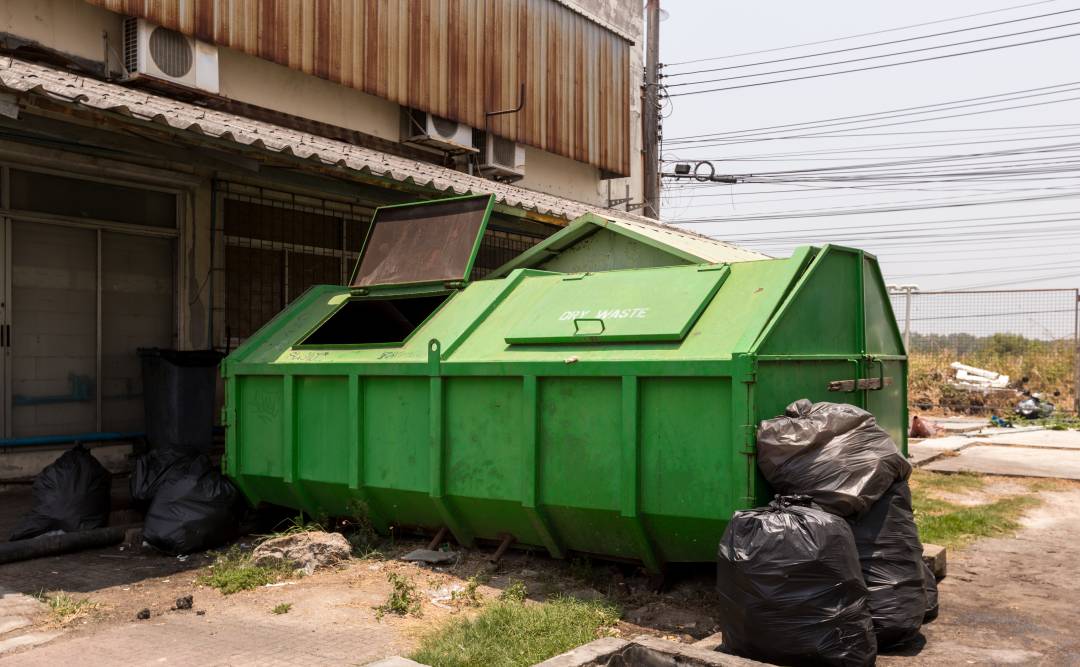Every project, from the smallest home declutter to the largest construction build, generates one universal challenge: waste. How you handle that waste can either streamline your project or create unnecessary stress. The right disposal plan is not just about getting rid of trash it’s about balancing three key factors: cost, convenience, and cleanliness.
Dumpster services have become the go-to solution for projects of all sizes, but not all services are created equal. Choosing wisely means considering the financial impact, the ease of use, and the ability to maintain a safe, organized site. By weighing these elements carefully, homeowners and contractors alike can maximize efficiency without overspending or cutting corners.
This guide explores how to evaluate dumpster services through those three lenses, showing why they play such a pivotal role in modern waste management.
The Real Cost of Dumpster Services
Cost is usually the first thing people think about when arranging a dumpster rental. But the cheapest option isn’t always the best. Hidden fees, incorrect sizing, or lack of pickup scheduling can drive up the actual expense.
A small container may seem affordable, but if it fills up too quickly, you’ll end up paying for additional pickups. Conversely, choosing a size that’s too large means paying for space you don’t use. Striking the right balance requires an honest assessment of your project.
There’s also the cost of not having a dumpster at all. Multiple trips to the landfill, higher labor hours spent on cleanup, and fines for improper disposal add up quickly. By comparison, a properly chosen dumpster rental often saves money overall.
Convenience Beyond Delivery
When most people think of convenience, they picture the dumpster itself: a large container dropped on-site. But true convenience is about how well the service integrates with your workflow.
For homeowners, it means the dumpster arrives before the first hammer swings or the first box is unpacked. For contractors, it’s about ensuring containers are swapped promptly when full, preventing delays on the job site.
Placement also plays a role in convenience. A dumpster should be close enough for easy access but positioned so it doesn’t block driveways or interfere with equipment. Good waste management means the container becomes a helpful tool, not an obstacle.
Cleanliness and Safety Go Hand in Hand
Clutter is more than an eyesore—it’s a hazard. Piles of wood, nails, or packaging scattered across a site create risks for tripping and injuries. For families working on home projects, the risks extend to children and pets who might wander into unsafe areas.
Centralizing debris in a dumpster keeps the environment safer and tidier. Workers and residents can move freely, tools stay organized, and the project feels under control. Cleanliness isn’t just about aesthetics—it directly affects safety and morale.
Integrating Waste Management Into Planning
A common mistake is treating waste management as an afterthought. In reality, planning for disposal should be part of the earliest stages of a project. Just as you plan for materials, labor, and timelines, you should plan for waste.
By scheduling a dumpster in advance, you prevent the site from being overwhelmed with debris before cleanup systems are in place. This foresight is especially important for projects like roof replacements or large remodels, where waste accumulates quickly.
Sustainability as a Fourth Factor
While cost, convenience, and cleanliness are central, sustainability is increasingly part of the conversation. Responsible waste management means diverting recyclables from landfills whenever possible. Metals, concrete, and untreated wood are just a few of the materials that can often be recycled instead of discarded.
A dumpster service that prioritizes recycling not only helps the environment but may also lower disposal costs. Choosing providers who understand local regulations ensures compliance and reduces the project’s overall footprint.
When to Use a Dumpster Rental
Understanding when to invest in a dumpster is as important as choosing the right service. These are a few situations where it makes the most sense:
- Home cleanouts: Garages, basements, and attics often yield far more debris than expected.
- Renovations: Even small remodels generate bulky waste like drywall, flooring, and fixtures.
- Landscaping projects: Soil, sod, and branches quickly overwhelm standard bins.
- Construction sites: Large-scale builds require ongoing waste management to stay organized.
Recognizing these moments early allows you to plan ahead, saving both time and stress.
How to Avoid Common Pitfalls
While dumpster rentals simplify waste management, mistakes can undermine their effectiveness. Overfilling containers, placing them in inaccessible areas, or underestimating the volume of waste are all common issues.
The solution is communication. Discuss your project with the rental provider to choose the right container size, clarify rules about what can and cannot be disposed of, and arrange a pickup schedule that fits the project’s pace. A reliable partner, such as Delta Waste Solutions, helps avoid these pitfalls and ensures the process runs smoothly.
Balancing Short-Term and Long-Term Value
Cost, convenience, and cleanliness don’t just apply to a single project—they also influence long-term efficiency. Contractors who regularly manage multiple job sites, for example, benefit from consistent waste management systems that streamline workflows across projects. Homeowners who plan future renovations can also benefit from building a relationship with a trusted provider.
The goal is to see dumpster services not as a one-time necessity but as a repeatable solution that keeps projects efficient and safe over time.
The Decision-Making Framework
When deciding on dumpster services, ask yourself three questions:
- Does this option fit the budget without hidden costs?
- Will it integrate easily into the workflow of the project?
- Does it improve cleanliness and safety throughout the site?
If the answer to all three is yes, then you’ve found the right balance. Add in considerations for sustainability, and you’ll have a solution that supports both immediate goals and broader environmental responsibility.
Conclusion: Smarter Choices for Cleaner Projects
Managing waste effectively is about more than removing trash—it’s about ensuring projects stay affordable, efficient, and safe. Cost, convenience, and cleanliness form the foundation of smart waste planning, while sustainability adds long-term value.
By approaching dumpster services with these priorities in mind, homeowners and contractors alike can avoid unnecessary expenses, reduce stress, and maintain cleaner environments. With dependable providers such as Delta Waste Solutions, making the right choice becomes straightforward.
In the end, waste management doesn’t just support the project—it shapes its success. The smarter your approach to dumpsters, the smoother your projects will run.












